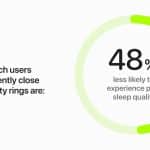Global Android usage continues to surge, capturing over 71% of the mobile operating system market in 2024. As companies race to meet mobile-first demands, the pressure to launch effective Android apps has intensified. But developing a high-quality application isn’t merely about coding — it begins with sourcing the right talent.
Hiring the wrong developer can be catastrophic. Poor technical execution, missed milestones, and non-compliance with Google Play policies often stem from hasty hiring decisions. Worse, the financial implications can be steep — excessive rework, user churn, and reputational damage are real risks.

This article highlights the most common errors that businesses make when they hire android app developer teams or individuals. From ignoring past performance to underestimating communication gaps, these pitfalls are avoidable with the right strategy. Avoiding them will save not just time and money, but also safeguard the long-term integrity of your mobile product.
How to Hire an Android App Developer the Right Way
The mobile application economy is expanding at record pace. In 2024, mobile app revenue is projected to hit $543 billion, with Android accounting for more than half that total. Given its dominance in emerging markets and wide device range, Android is not just relevant — it’s indispensable.
With demand rising, organizations often rush to hire android developers without a solid selection process. That haste can come back to haunt them. A poorly scoped hiring plan typically leads to inefficient team collaboration, low code quality, and poor user reviews.
When you aim to hire an android developer, your strategy should balance technical screening, soft skill evaluation, and cultural alignment. Even with the best job description, skipping foundational checks — such as coding tests, portfolio validation, and communication trials — can lead to app failures.
Here are three essentials to set your hiring on the right track:
- Structure the job description with precise tech requirements (e.g., Kotlin, MVVM, Retrofit).
- Conduct scenario-based interviews to test thinking under pressure.
- Assign a small test project to assess coding style and adherence to Android best practices.
A structured approach reduces guesswork and minimizes the chances of onboarding a developer who cannot meet performance benchmarks. Every hire impacts project velocity — one weak link can cascade into missed sprints and dissatisfied users.
When building Android apps, talent quality directly affects scalability and post-launch support. Getting the first hire right is less expensive than course-correcting mid-project.
Common Pitfalls When You Hire Android Developers
1. Prioritizing Low Cost Over Skill
Many businesses get lured by bargain rates and offshore proposals. However, a developer charging $15/hour who lacks Android-specific experience can create long-term issues. Incomplete test coverage, unoptimized layouts, and outdated libraries are common byproducts of low-cost hiring. Projects that seem affordable often demand costly rewrites later.
2. Ignoring Portfolios and App Reviews
Portfolios reveal more than resumes. A developer’s Play Store presence, star ratings, and user feedback signal not just competence but consistency. Skipping this step can leave you with someone whose work has never been deployed — or worse, who has apps riddled with performance complaints. Before you hire android developers, always audit their live apps.
3. Overlooking Communication Proficiency
Effective developers explain ideas clearly. They provide structured updates and ask questions that sharpen feature scope. Without these qualities, even the best coders stall team progress. For agile teams, poor communication leads to frequent misunderstandings and last-minute firefighting.
4. Disregarding Time Zone Compatibility
Hiring from a different continent without overlapping work hours is risky. A 12-hour delay in replies adds friction. Feedback loops get longer, urgent issues remain unresolved, and decision-making slows. Time zone awareness matters — especially when you hire android app developers working remotely.
5. Failing to Evaluate Problem-Solving Skills
Syntax is easy. Diagnosing a memory leak in a multi-threaded app is harder. Developers who ace programming quizzes but struggle with debugging in real scenarios won’t thrive. Set challenges that require both algorithmic thinking and architectural insight. This separates reliable hires from those who can’t troubleshoot effectively under pressure.
Avoiding these five mistakes preserves momentum, protects your budget, and improves final product quality.
What to Look for in Android Programmers for Hire
1. Technical Fluency
Look for hands-on experience with Java and Kotlin, as both remain core to Android development. The developer must also demonstrate comfort with Android SDK, Jetpack libraries, and Retrofit or Dagger. These tools ensure scalable code and modular design.
2. Familiarity with App Lifecycle and Play Guidelines
The best candidates understand the nuances of the Android app lifecycle, including activity states, memory management, and background processing. They should also be well-versed in Google Play’s submission standards — covering data privacy, content policies, and security updates.
3. Clean Coding Habits and Design Patterns
Ask about their use of design patterns such as MVVM or MVP. Developers should also explain how they use dependency injection, single-responsibility principles, and modular architecture. When you vet an android programmer for hire, insist on seeing well-documented GitHub repositories or test projects.
4. UI/UX Sensibility
A strong grasp of Material Design principles is crucial. Check whether the candidate can implement adaptive layouts for tablets and phones. Also verify knowledge of accessibility features like TalkBack, screen readers, and font scaling. Mobile apps fail not just due to code but due to poor usability.
5. Soft Skills That Matter
Responsiveness, transparency, and reliability are non-negotiable. Developers who set clear expectations, surface blockers early, and work well within sprints are invaluable. High productivity is unsustainable without strong communication discipline.
Before shortlisting android programmers for hire, develop a scorecard that measures both hard and soft criteria. Hiring becomes much easier — and smarter — when expectations are measurable.
Conclusion
Hiring Android developers without a structured plan is like building a house without blueprints. The risks are costly and widespread — budget overruns, delayed launches, security lapses, and technical debt that compounds with every release.
Companies too often hire an android app developer based on gut feeling or lowest rate. They overlook communication, ignore time zones, and skip technical challenges. These shortcuts derail the very products they’re racing to build.
When hiring, preparation trumps urgency. Start with a detailed job description. Vet portfolios for live app performance and user reviews. Assign technical tasks that mimic real-world problems. Ensure time zone compatibility and prioritize clear, direct communication from day one.
Use this short hiring checklist to avoid the most common traps:
Do
- Test real-world problem-solving
- Review past projects on Google Play
- Align communication and work hours
Don’t
- Hire based on price alone
- Skip test assignments
- Ignore feedback from past clients
The Android market is massive, but your margin for hiring error is small. By applying a thoughtful strategy, you can secure developers who bring not just code — but confidence, clarity, and stability — to your mobile product.












